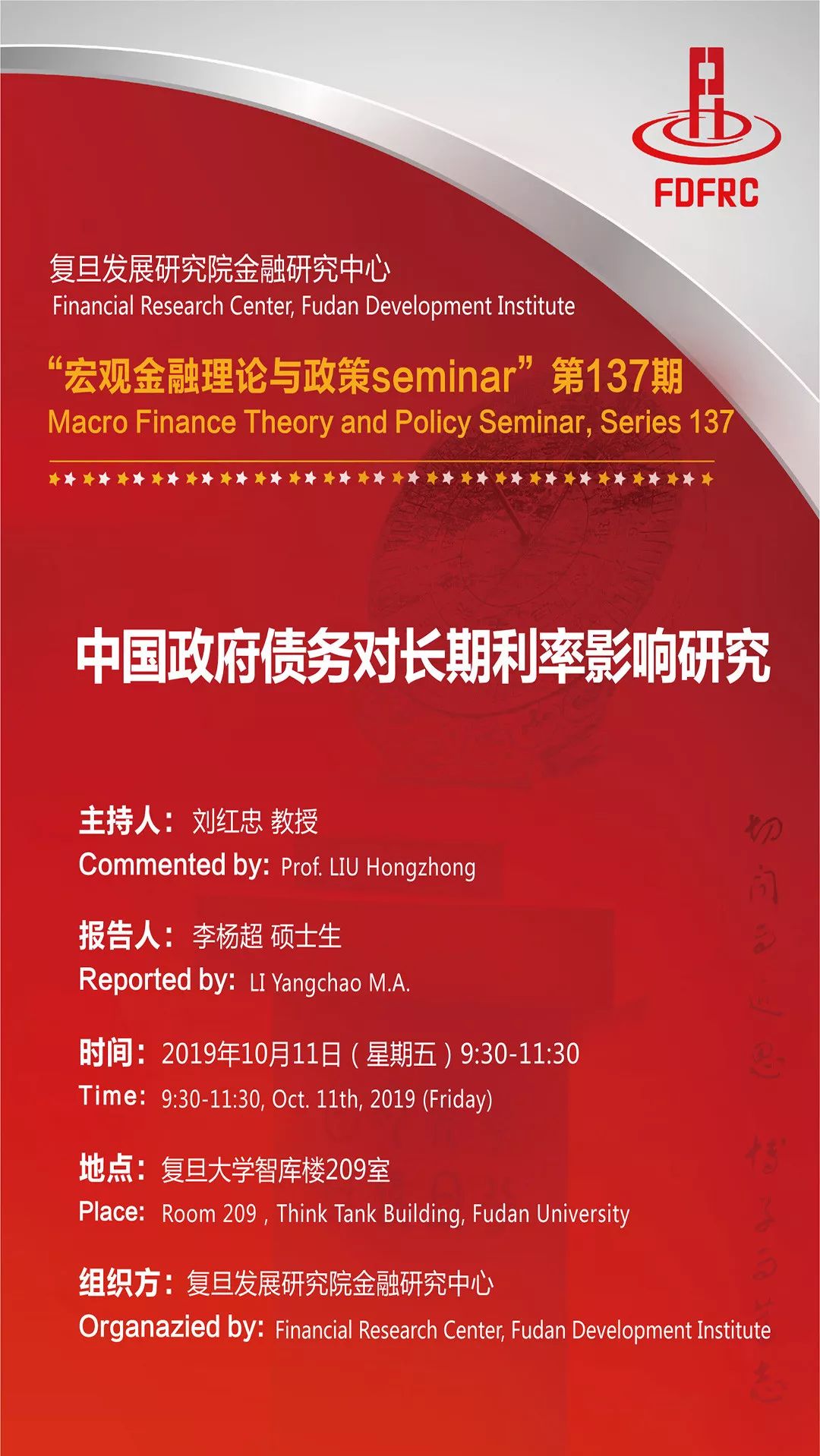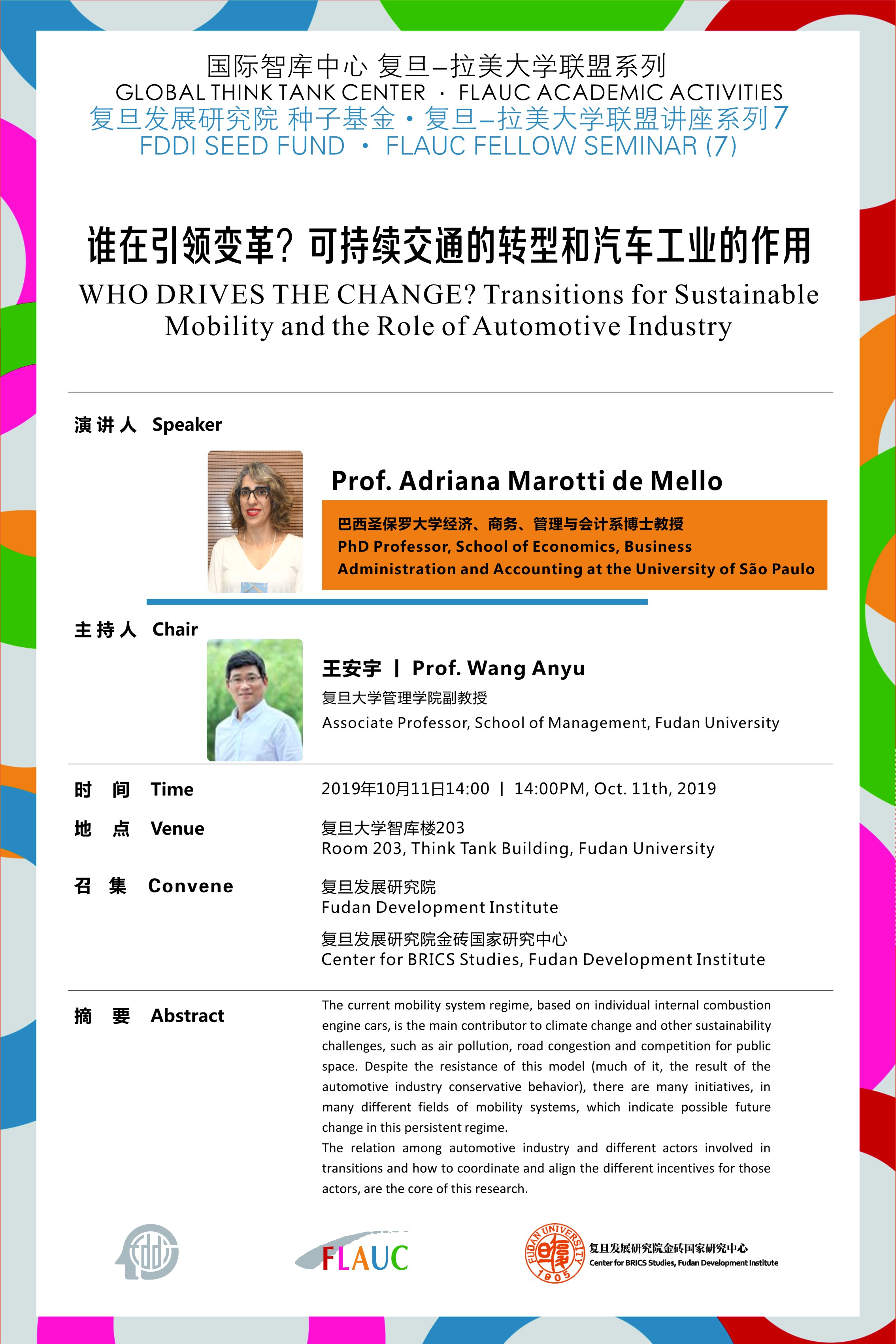作者: 发布时间:2019-10-11 来源:复旦发展研究院+收藏本文

宏观金融理论与政策Seminar第137期
Macro Finance Theory and Policy Seminar, Series 137
题目:中国政府债务对长期利率影响研究
主持人:刘红忠 教授
报告人:李杨超 硕士生
时间:2019年10月11日(星期五)9:30-11:30
地点:复旦大学智库楼209室
主办方:复旦发展研究院金融研究中心
国际智库中心 复旦-拉美大学联盟系列
GLOBAL THINK TANK CENTER · FLAUC ACADEMIC ACTIVITIES
复旦发展研究院 种子基金·复旦-拉美大学联盟讲座系列7
FDDI SEED FUND · FLAUC FELLOW SEMINAR (7)
谁在引领变革?可持续交通的转型和汽车工业的作用
WHO DRIVES THE CHANGE? Transitions for Sustainable Mobility and the Role of Automotive Industry
演讲人 Speaker
Prof. Adriana Marotti de Mello
巴西圣保罗大学经济、商务、管理与会计系博士教授
PhD Professor, School of Economics, Business Administration and Accounting at the University of São Paulo

主持人 Chair
王安宇 Prof. Wang Anyu
复旦大学管理学院副教授
Associate Professor, School of Management, Fudan University

时间 Time
2019年10月11日14:00 丨 14:00PM, Oct. 11th, 2019
地点 Venue
复旦大学智库楼203
Room 203, Think Tank Building, Fudan University
召集 Convene
复旦发展研究院
Fudan Development Institute
复旦发展研究院金砖国家研究中心
Center for BRICS Studies, Fudan Development Institute
摘要 Abstract
The current mobility system regime, based on individual internal combustion engine cars, is the main contributor to climate change and other sustainability challenges, such as air pollution, road congestion and competition for public space. Despite the resistance of this model (much of it, the result of the automotive industry conservative behavior), there are many initiatives, in many different fields of mobility systems, which indicate possible future change in this persistent regime.
The relation among automotive industry and different actors involved in transitions and how to coordinate and align the different incentives for those actors, are the core of this research.

